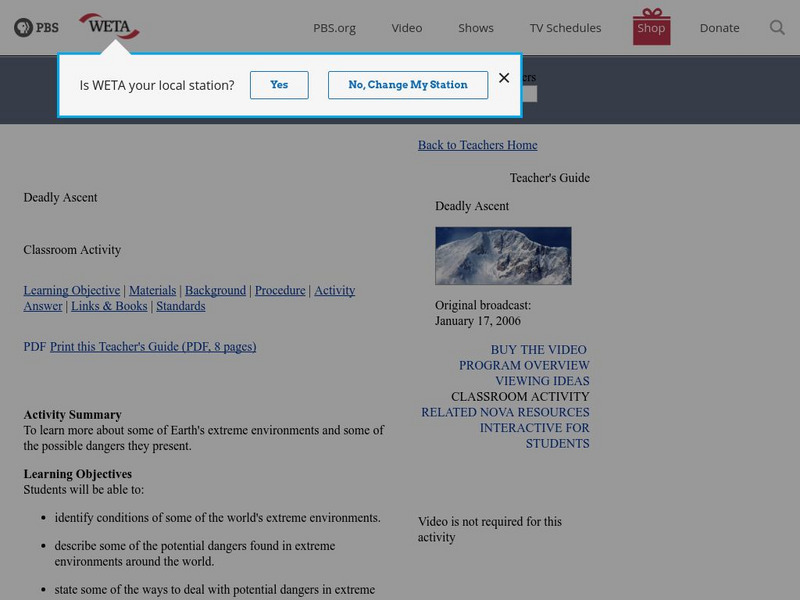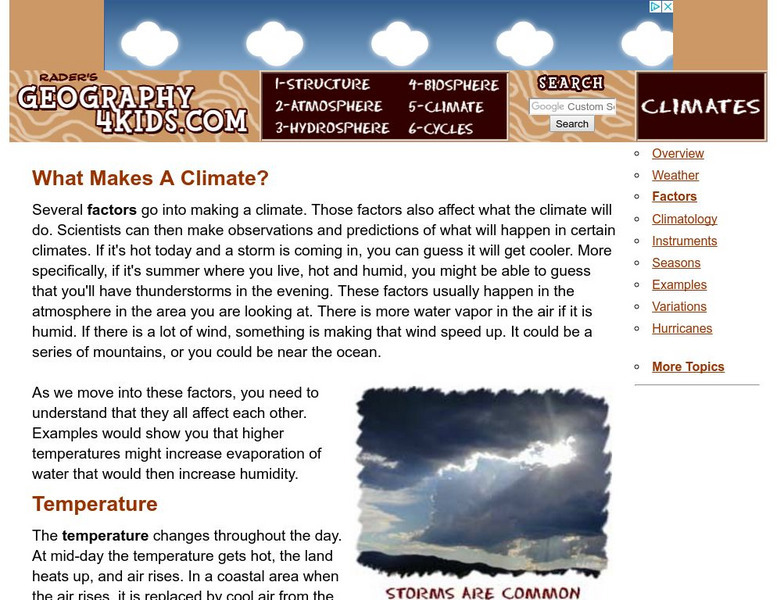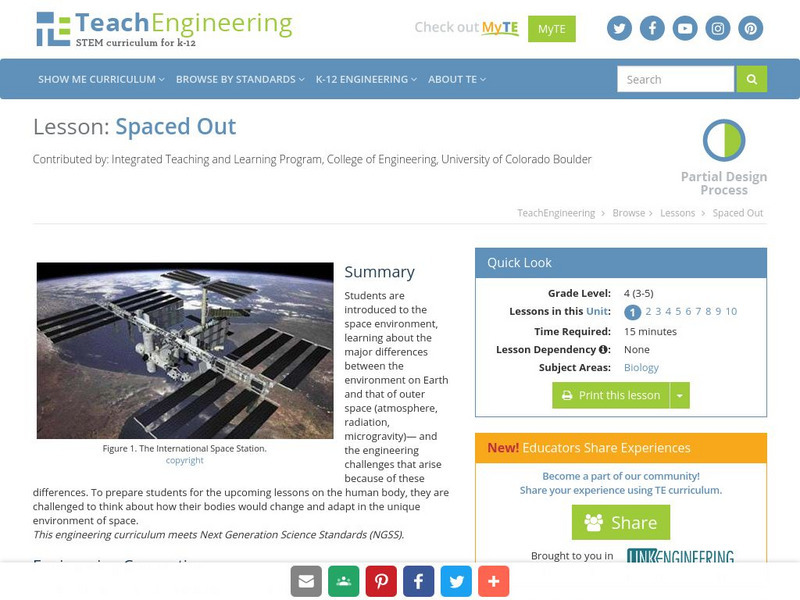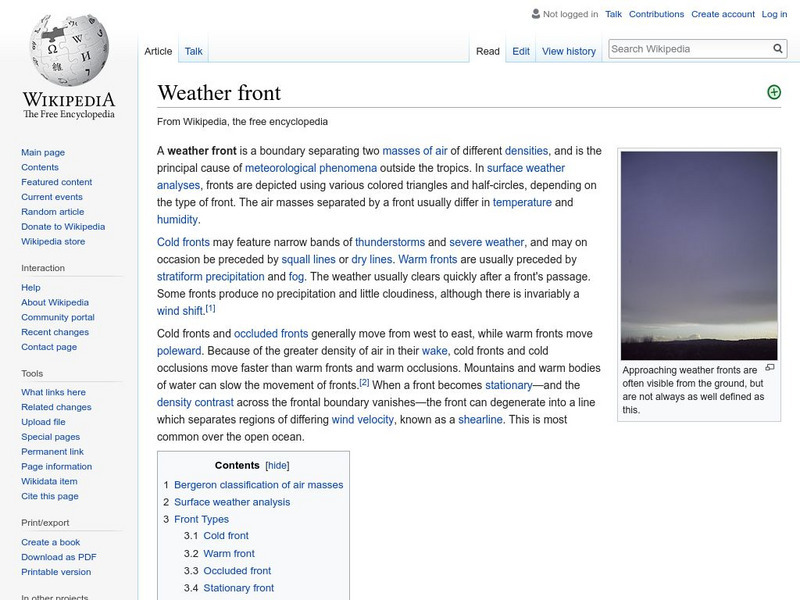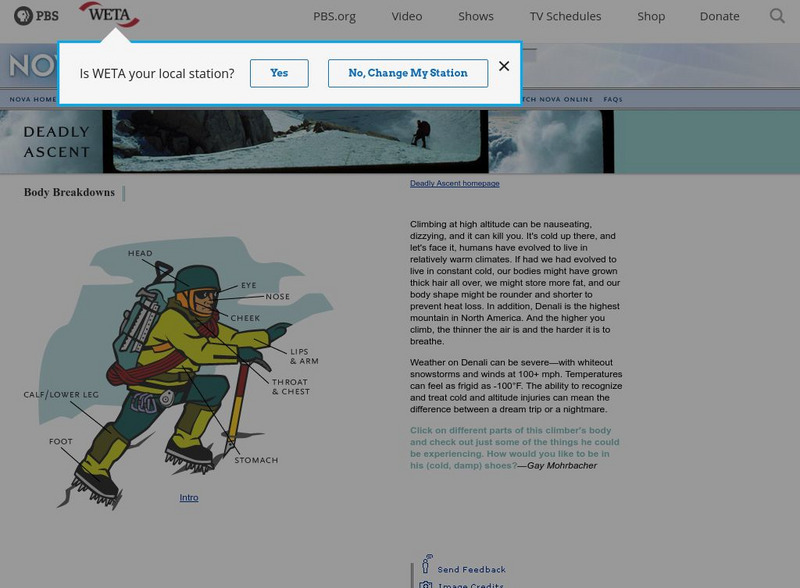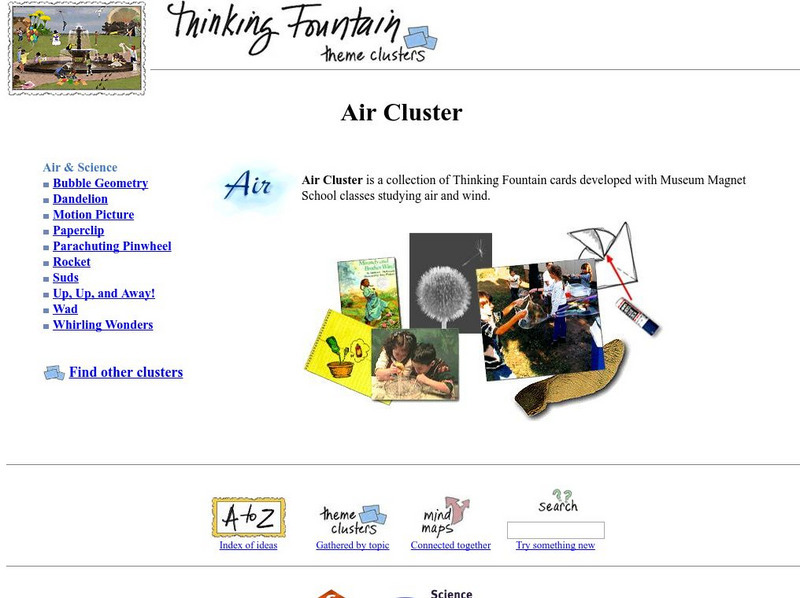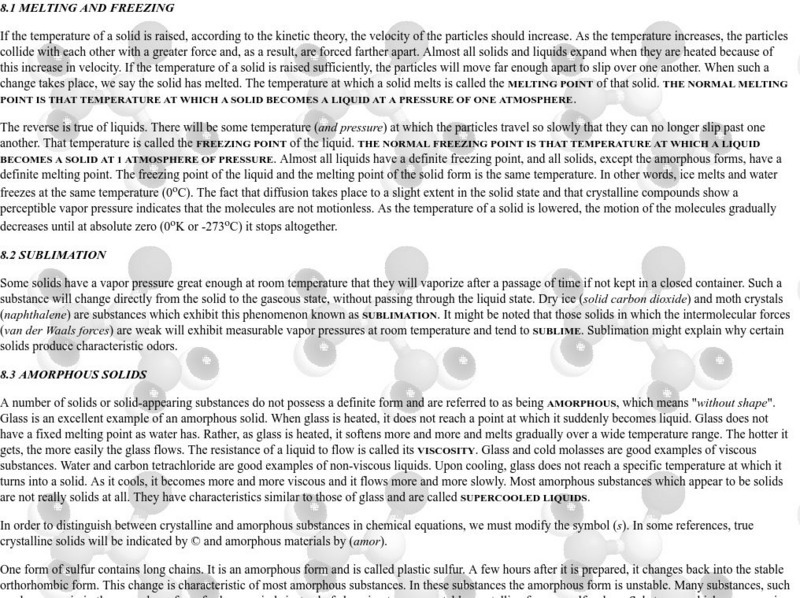TeachEngineering
Teach Engineering: Weather Basics
Students are introduced to the basics of the Earth's weather. Concepts include fundamental causes of common weather phenomena such as temperature changes, wind, clouds, rain and snow. The different factors that affect the weather and the...
NASA
Nasa: Beginner's Guide to Aerodynamics
Includes exhaustive information and a wealth of activities pertaining to aerodynamics and the physics of flight.
Discovery Education
Discovery Education: Weather Maps
This site provides a lesson plan in which groups of students will each investigate a different type of weather map use for weather forecasting. Also includes discussion questions, extension ideas, and links to additional sites for more...
Science and Mathematics Initiative for Learning Enhancement (SMILE)
Smile: Does Air Really Exist?
Given a teacher demonstration and various learning stations, the students learn that air is a real substance which occupies space, exerts pressure, and has weight.
CK-12 Foundation
Ck 12: Plix Series: Gas Mixture and Molecular Speeds
[Free Registration/Login Required] Hike to the top of Mt. Everest and observe what happens to the amount of molecules pushing down on the surface of the Earth. After the activity, answer one challenge question about the topic.
PBS
Pbs Teachers: Deadly Ascent
Learn about some of Earth's extreme environments and possible dangers they present. Identify ways to deal with potential dangers in extreme environments.
Geography 4 kids
Geography4 kids.com: What Makes a Climate?
Find out what factors contribute towards a climate.
TeachEngineering
Teach Engineering: Spaced Out
This lesson introduces students to the space environment. It covers the major differences between the environment on Earth and that of outer space and the engineering challenges that arise because of these discrepancies. In order to...
CK-12 Foundation
Ck 12: Chemistry: Boiling
[Free Registration/Login may be required to access all resource tools.] Covers boiling point.
TeachEngineering
Teach Engineering: Air Pollution
Students are introduced to the concept of air quality by investigating the composition, properties, atmospheric layers and everyday importance of air. They explore the sources and effects of visible and invisible air pollution. By...
Chateau Meddybemps
Medord Clock and Barometer: Barometers
A brief history of the development of barometer is given. Pictures of historical types of barometers are shown. Links to related topics.
Bill Nye
Bill Nye: Barometer in a Bottle
Try this at-home science experiment to learn how to build your own barometer.
Wikimedia
Wikipedia: Weather Front
This Wikipedia site tells all about weather fronts, or boundaries between two air masses with differing characteristics. Includes many hyperlinked terms to additional information on related subjects.
PBS
Pbs Teachers: Deadly Ascent: Body Breakdowns
Explore the injuries mountain climbers can sustain when they reach high altitudes, and discover how extreme cold can damage the human body.
NOAA
Noaa: Photo Library: Solar Powered Surface Automated Measurement (Sam) Site
The National Oceanic and Atmospheric Administration provides a photo library of severe weather formations and the instruments that measure them. Here you can find a photograph of a solar-powered Surface Automated Measurement (SAM) site....
John F. Kennedy Center
The Kennedy Center: Lesson: Weather and Wind
Here's an engaging activity to incorporate dance into your science lessons on weather! Students study wind, and various weather patterns, then create their own dance to illustrate what they have learned. Provides links to more...
Science Museum of Minnesota
Science Museum of Minnesota: Air Cluster
Interesting site with links to activities about wind and air in many forms. Browse the different activities and investigations on the properties of air on the toolbar to the left of the page.
Other
Atoms in Motion: All Matter Is Made of Atoms
Atoms are very, very small. Atoms are so small that it is often said that there are as many atoms in a single grain of sand as there are grains of sand on all of the world's beaches - certainly a difficult thing to prove, but you get the...
Other
Third Millenium Online: Melting and Freezing
The concepts of melting point and freezing point are explained on this site.
Other popular searches
- Atmospheric Pressure Lab
- Atmospheric Pressure Water
- Atmospheric Pressure Lessons
- Atmospheric Pressure Balloon





